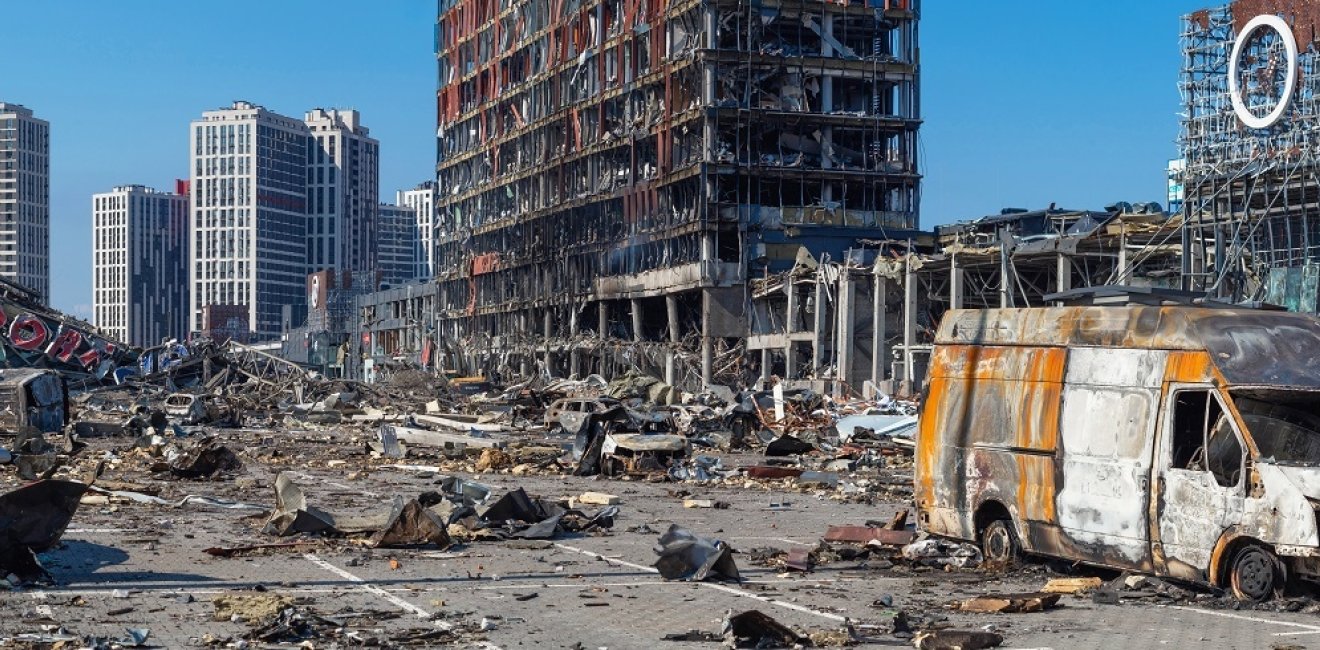
A blog of the Kennan Institute
February 24 marks the start of the second year of Russia’s full-scale war against Ukraine. We don’t know how and when the war will end, but Ukraine has demonstrated that it intends to fight to the end and will not voluntarily relinquish its territorial integrity.
The shock waves from the war have reverberated across the global north. Many countries are in the throes of reassessing their foreign and domestic policies and multinational security commitments. In particular, the war has forced a shift in perspective on Ukraine and Russia, especially among the EU member states, Great Britain, and the United States.
Rethinking Ukraine
In the weeks and months before the war started, many countries—and many Ukrainians, despite US intelligence warnings—did not believe that Russia would actually mount a major invasion of Ukraine beyond its incursions into the Donbas and its 2014 seizure of Crimea. As missiles rained down on multiple locations in Ukraine on the first day of the war, there was widespread skepticism that Ukraine could resist beyond a few weeks.
In part, the disbelief was fed by the geopolitical concerns of certain major powers and Ukraine’s seeming inability to oust Russian soldiers and proxies from the East of the country. Before the war, the West was conservative in providing arms to Ukraine so as not to provoke Russia. Probably expecting a quick defeat once the all-out war began, the United States instead focused on supporting a post-invasion Ukrainian resistance. Ukraine’s then ambassador to Germany, Andrii Melnyk, told the story in March of how German finance minister Christian Lindner was against supplying weapons to Ukraine, expecting the country to fall within hours.
But the first weeks of the war demonstrated that Ukrainians, though caught on the back foot, were solidly united in defending their country. Tens of thousands of volunteers joined the army in the early days of the invasion. Tens of thousands more joined local auxiliary defense units or lent their skills to making Molotov cocktails, jerry-rigging ambush traps, and sewing uniforms.
Ukrainians’ strong show of resistance, on the one hand, and Russia’s inhumane targeting of civilian structures on the other subsequently convinced the West to step up its help. The Patriot missile systems and Abrams and Leopard tanks that Western allies have agreed to provide Ukraine were off the table a year ago. With help from partner countries, Ukraine has been able to continually refine its fighting force, conduct effective counteroffensive operations, and liberate territories that had been seized by the invading troops. All this gives hope to Ukraine in a war characterized by massive losses and destruction.
In a broader historical perspective, however, this war is just another battle in Ukraine’s long struggle for independence from Russia. The war has demonstrated Ukraine's firm rejection of the “Russian world” and its keenness to join the West formally. To achieve this aspiration, Ukraine has already paid an extraordinarily high price. The EU has now granted Ukraine candidate status.
Rethinking Russia
One year after the invasion, the losses of the Russian army are huge: almost 150,000 servicemen killed and 10,000 tanks and armored combat vehicles destroyed, along with 2,800 artillery and multiple rocket systems, 600 fixed-wing aircraft and helicopters, 2,000 unmanned aircraft, and 18 ships, including the flagship Moskva. (These figures were compiled by the General Staff of the Armed Forces of Ukraine.)
The Russian army, long touted by Russians as the second most powerful in the world, has been exposed as an unprepared fighting force weakened by corruption at high levels. Putin’s mobilization order has been extremely unpopular and has prompted a mass emigration of skilled civilians and their families who don’t want to die in this war.
Rethinking Security and Energy Policies
The first year of the Russian war in Ukraine saw policy changes in many states. Perhaps most important was the stark reminder of the Kremlin’s ability to cause harm. The countries that had lapsed in spending on their armed forces and security alliance agreements, especially in Europe, woke up with a start to the realization that the threat of war being instigated by the Kremlin was just as present as it was during the Cold War. In a return to the status quo ante, military alliances and military spending are expected to become a high-priority item in foreign and domestic policy for countries directly or tangentially affected by the war.
Energy policy is similarly undergoing a major change of course. Before the war, Russia was the biggest global energy exporter and Europe was its biggest market. For half a century Russia and Europe were cautiously building an energy-based cooperation, a situation not unanimously welcomed by EU member states. After the invasion the EU countries exhibited an unprecedented unity in deciding to forgo cooperating with Moscow over energy supplies. The EU made the historic decision to refuse Russian supplies by the end of the 2020s. So Russia will lose its biggest market and likely will never again hold such a dominant position as an energy supplier, according to the International Energy Agency.
The war is providing a new context for and special urgency to making the transition to renewable sources of energy and firming up their place in the energy systems of Europe. At the same time, Russia is likely to become even more dependent on China and India to purchase its fossil fuels.
Nuclear energy is also returning to the headlines, both as a potential technology with wider application and as a clear target of aggression: Russia’s occupation of the Zaporizhzhia nuclear power plant, the biggest in Europe, and conversion of the plant into a military base not only “shields” Russian forces from Ukrainian attacks, it poses a risk to the whole continent.
The seemingly endless war, with cities lost and retaken and trenches occupied serially by contending forces, has induced a certain war fatigue in the nations that are watching and waiting. We cannot know when the war will be over, or the final toll of losses—immense on both sides. But this much is clear: it is not just a war instigated against a sovereign country that did not seek it. It is a war against humanity, with responding forces waging a war against evil. And nothing less than the future of Europe is at stake.
The opinions expressed in this article are those solely of the author and do not reflect the views of the Kennan Institute.
Author

Director, Energy Program, Ukrainian Institute for the Future

Kennan Institute
After more than 50 years as a vital part of the Wilson Center legacy, the Kennan Institute has become an independent think tank. You can find the current website for the Kennan Institute at kennaninstitute.org. Please look for future announcements about partnership activities between the Wilson Center and the Kennan Institute at Wilson Center Press Room. The Wilson Center is proud of its historic connection to the Kennan Institute and looks forward to supporting its activities as an independent center of knowledge. The Kennan Institute is committed to improving American understanding of Russia, Ukraine, Central Asia, the South Caucasus, and the surrounding region through research and exchange. Read more

Explore More in Focus Ukraine
Browse Focus Ukraine
Talking to the Dead to Heal the Living

Ukrainian Issue in Polish Elections


